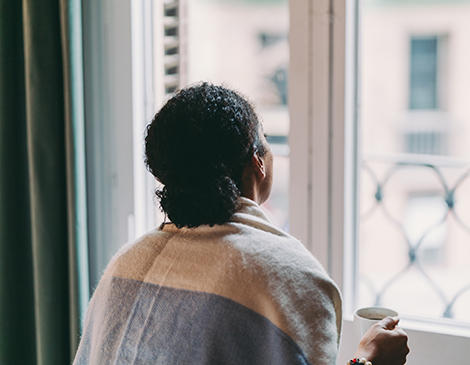Bathed in the light at the end of our COVID-shared tunnel are visions of families feasting, friends embracing, all of us dining out, packing theaters and shopping anywhere but Amazon. At the shadowy fringes of that exhilarating picture are some folks who are whispering to themselves: I’m not ready for this. I am one of those people.
How, when the nation has suffered so deeply, is it possible to have conflicted emotions about the end of a pandemic-enforced quarantine? It seems wrong. Maybe even a little shameful.
At the onset of the pandemic, I transitioned from homebody to hermit so swiftly and completely it surprised even me. March 2020 wiped every appointment off my calendar — dental cleanings, haircuts, oil changes, meetings, social gatherings. I was already working from home. My husband took it upon himself to do the grocery shopping. There was no need for me to leave the house, ever, unless I was going for a walk. And I didn’t have to bear the stress of trying to keep children engaged in remote learning, let alone while working another job. While many of the people I know were desperate to bust out, quarantine gave me a socially acceptable reason to stay in. My empty calendar seemed less a barren field than a private beach.
It felt like a dirty secret. At every turn was a livestream of public and private suffering. Empty streets. Millions jobless. Rising levels of domestic abuse and depression. Canceled sports seasons, weddings, graduations. Loved ones dying with shocking speed, sometimes alone. Exhausted hospital staff working at the very precipice of our national despair.
Then I realized the obvious: I wasn’t calloused to the pain inflicted by the pandemic. I just had to face my powerlessness over it. I couldn’t tend the sick or even hold a hand. I could support local businesses the best I could but I didn’t have the deep pockets to make a meaningful impact. It didn’t seem like much, but the most important contribution I could make to the whole disastrous situation was to stay home. I could be a calming presence for my husband, who scrambled to keep our small business afloat. So, I began to settle in the quiet of my interior space.
Eventually, my brief forays out in the world affirmed there were subtle upsides to the new normal we were all experiencing. The first time I stood in line with a gallon of milk at Discount Drug Mart, I quickly learned the anonymity afforded from wearing a mask, relieving me of small talk, a cultural obligation I found excruciating. Even outside, I loved the emptiness of walking trails, of having the woods and water to myself.
To gauge my relative level of misanthropy, I conducted a casual survey of some friends and acquaintances. Several of them said they not only value the anonymity of masks but plan to keep wearing them for a multitude of reasons. One beautiful young woman is overjoyed that she doesn’t have to hear men tell her to smile. Another friend relishes quarantine’s reprieve from awkward family gatherings. And a young mom of two school-aged children has felt unexpected grief at their return to the classroom.
Beyond the emotional aspects of imminent post-pandemic life, there are the quotidian routines, too. Six months into quarantine without a visit to the hair salon, I discovered I like my hair better when it’s long. For the first time since sighing over Seventeen magazine as a high school girl, I stopped wearing makeup, for the most part, and decided I look fine just as I am. Rotating the same seven sets of comfortable clothes suits me. I can pretty much dress in the dark.
The idea of learning and teaching by Zoom was at first loathsome to me, but I’ve learned to be comfortable with it. No one has to drive across town or even up the street for class, especially in bad weather. I just took an eight-week course co-taught in real time by two women, one who lives in Pennsylvania and the other in Dubai. That couldn’t have happened so easily 15 months ago.
I can barely keep up with the bounty of free programming online now. Every day at any hour I can tune in to a book talk, a lecture, a short seminar. And while there’s no substitute for in-person contact, online programming has made it possible for vital cultural organizations to host events that cast a much wider net, sometimes attracting several times the number of attendees they would normally expect.
I believe some pandemic-acquired trends are here to stay, at least in hybrid form. Once again, it seems, humans have taken a dark catastrophe and somehow found ways to shine a light on its improbable gifts.
Longer hair, no makeup, a newfound love for clothes without zippers or hooks — revelations, all. Mostly, though, I’ve come to realize the best way to be helpful in a crisis isn’t always what I think it will be. It might just be a willingness to hold still and try to be a peaceful space for people to come home to.




